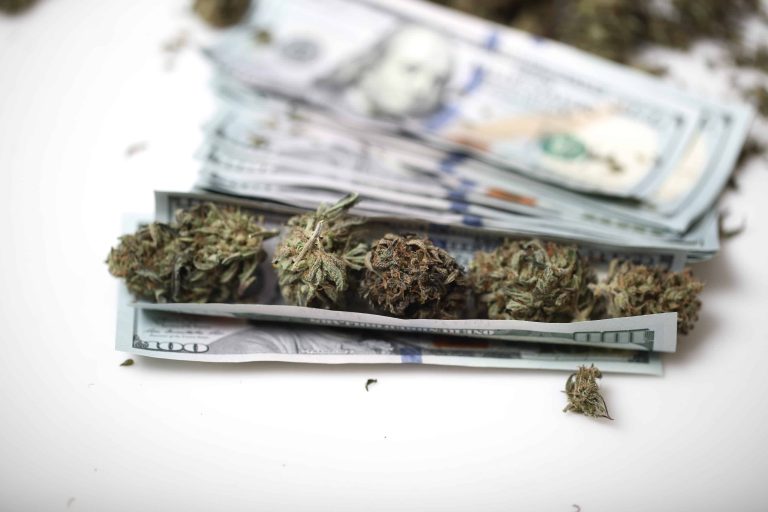According to data from the cannabis research firm Whitney Economics, the cannabis industry paid an excess of $1.8 billion in additional taxes in 2022 alone. And, spoiler alert: This article doesn’t have a happy ending. Cision PR Newsletter reports that this number is expected to jump to $2.1 billion in 2023.
As High Times continuously writes, with deep frustration, so far, the legal cannabis industry has largely not succeeded in creating an accessible business model. California, among other states, is seeing a mass exodus as legal cannabis companies, such as Jerry Garcia’s legacy brand, leave the state due to exorbitantly high taxes and red tape. Despite ongoing efforts to help communities most impacted by the War on Drugs enter the legal market, if celebrity brands can’t make a profit, how is one starting life after the financial and mental turmoil of going to prison for a non-violent cannabis offense supposed to make a decent living?
So why are the taxes so damn high for cannabis businesses? Don’t forget that your pretty pre-rolls and vegan edibles are technically still a Schedule I substance, meaning that, according to the Feds, cannabis has “no currently accepted medical use and a high potential for abuse.” This is scientifically inaccurate and regressive, not to mention hypocritical, as 38 states and Washington D.C. currently have medical marijuana programs. The taxes inflicted on folks in the legal market indicate that legalization is not the utopia we hoped for and may help the black market, which continues to flourish. Overtaxing legal cannabis companies is not only harmful to business owners, but it raises prices and thus isolates potential clients.
Cannabis companies are subject to the federal tax provision 280E, which “penalizes traffickers of Schedule I or II drugs by disallowing the deduction of “ordinary and necessary” business expenses—such as below-the-line deductions—after reducing gross receipts by the cost of goods sold, or COGS, essentially resulting in federal income tax liability calculated based on gross income, not net income,” according to Bloomberg Tax.
If you pour the stress of 280E on top of other cannabis business hurdles, such as difficulty accessing banking services and regulations against any interstate commerce, the result is that for many companies, it’s impossible to make a profit in the legal cannabis biz. The effective tax rates are often higher than 70% for cannabis retailers.
As Cision PR Newsletter reports, as a result, 24.4% of cannabis operators surveyed indicated that they are profitable. And things are becoming more dire last year; the figure was 42%. And, while it’s tempting to blame a post-pandemic economy, other industries are actually flourishing. According to Bloomberg, in 2022, U.S. corporate profits saw the largest margins since the 1950s.
As warned earlier in this article, don’t expect the legal market to have a breakthrough and get better anytime soon. Whitney Economics is releasing a survey later this month stating that cannabis businesses are hanging on by the skin of their teeth and should not expect a positive shift in the immediate future.
“The cannabis industry is under extreme economic distress, and the current regulatory and taxation environment is untenable, even in the short term,” says Beau Whitney, chief economist at Whitney Economics, according to a press release. He adds that many state markets are on “the brink of systemic collapse.” The report suggests that tax reform is the only answer to the problem. Under the right tax laws, the cannabis industry could be bringing in billions—and not just for the government to collect in taxes. Whitney Economics predicts that with the proper reform of 280E and cannabis policy, industry employment will increase, and economic activity will rise by $35.2 billion over ten years.
Reuters reports that three Senate Democrats introduced a bill to remove cannabis from the Controlled Substances Act in July of 2022, thus nullifying Code Sec. 280E. The Cannabis Administration and Opportunity Act would impose a top excise tax of 25% on products sold by large cannabis businesses. At time of reporting, it is still pending.
